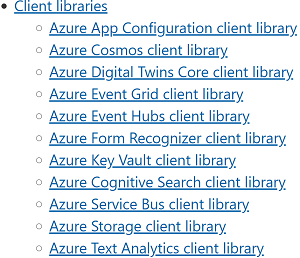News
Microsoft Previews Azure SDK for Python (Conda) Packaging System
Microsoft released a preview of the Azure SDK for Python (Conda), providing package, dependency and environment management, specifically in the form of open source libraries for provisioning, managing and using Azure resources from Python applications.
According to its web site, the open source Conda "quickly installs, runs and updates packages and their dependencies. Conda easily creates, saves, loads and switches between environments on your local computer."
Conda is closely associated with Python, for which it was created, though it also works with many other languages.
In a May 14 blog post, Microsoft announced the preview, saying, "Conda is the most popular platform for scientific computing. It is widely used by data scientists. It provides a packaging system, separate from PyPI, which optimizes for self-contained packages, guarantees dependency enforcement, and provides built-in execution environment isolation."
The SDK packages comes with a large collection of client libraries for specific functionality, ranging from configuration to storage to text analytics. In addition to those client libraries, others cover identity/security and management.
 [Click on image for larger view.] Client Libraries (source: Microsoft).
[Click on image for larger view.] Client Libraries (source: Microsoft).
"We've simplified packages for Azure SDK for Python (Conda) by grouping them by services," said Microsoft's Xiang Yan, Senior Software Engineer. "E.g. we bundle azure-storage-blob, azure-storage-queue, azure-storage-file-share and azure-storage-file-datalake packages into one azure-storage package. It is not 1 on 1 mapping between conda packages and PyPI packages." PyPI, standing for the Python Package Index repository of software for Python, helps developers find and install software created and shared in the Python community.
Available via the Microsoft channel, the post includes instructions on using commands to add the Microsoft channel to Conda config and then install the packages via the command line.
"Azure SDK for Python (Conda) packages are now in preview and we be stable soon," Xiang said. "If you want to give it a try and give us feedback, you can open issues on GitHub. Your contribution will be more than appreciated."
About the Author
David Ramel is an editor and writer at Converge 360.